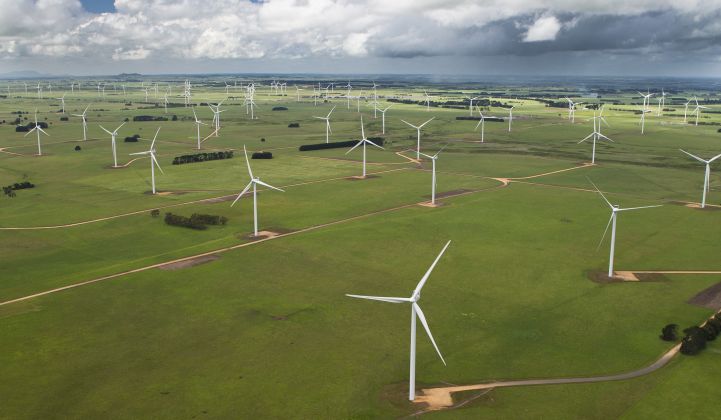Denmark’s Vestas, the world’s leading wind turbine supplier, is moving to acquire a stake in renewables project developer Sowitec — part of a trend of wind manufacturers diversifying to offer multi-technology solutions to customers around the world.
Vestas this week announced a deal to acquire a 25.1 percent stake in privately owned Sowitec, with an option to buy the rest of the company within three years. Although based in Germany, Sowitec has made its biggest mark in Latin America, particularly Mexico and Brazil, and is active in both solar and wind development in more than a dozen countries.
The deal is not huge by Vestas’ standards, with Sowitec expected to report 2018 consolidated revenues of 30 million euros ($34 million), compared to Vestas’ full-year revenue of 10.1 billion euros. Sowitec claims to have developed more than 2.6 gigawatts of renewables capacity now in operation, typically selling projects once they reach an advanced stage of development.
Still, analysts said the deal underscores a broader shift in the wind industry as turbine suppliers expand their in-house development capabilities — including with solar and storage technologies. The deal is expected to close during the second quarter of 2019.
“Competitive differentiator”
Shashi Barla, principal analyst for the global wind supply chain and technology at Wood Mackenzie Power & Renewables, said that in today's power-generation world, buyers and asset owners are "not looking at wind in isolation – they are keen on adding renewable capacity."
Major wind turbine suppliers are "increasingly focusing on energy storage and solar PV development," in addition to developing, financing and constructing wind farms.
Turbine companies "see this as a competitive differentiator to sign large deals with asset owners, utilities and governments to offer integrated solutions," Barla said.
Vestas has already pushed into the projects business in some markets, including through its North American development arm Steelhead Americas. And the company has moved beyond pure wind technology in recent years.
In 2017 Vestas began investing in a research partnership with Northvolt, a Swedish battery storage startup founded by two former Tesla executives.
Last year Vestas paid $100 million to acquire Utopus Insights, a US-based energy analytics and digital solutions company spun out of IBM that will allow the Danish manufacturer to better integrate its products with adjacent sectors like solar and natural gas.
In buying into Sowitec, “Vestas gains access to an independent development entity that strengthens our co-development portfolio and improves our solutions and capabilities in strategic markets in Latin America,” Juan Araluce, Vestas’ chief sales officer, said in a news release.
Several of Vestas’ main competitors in the wind industry, notably GE Renewable Energy and Siemens Gamesa Renewable Energy, are also investing in project development and multi-technology hybrids.
Envision, China’s second largest wind turbine supplier after Goldwind, last year acquired a controlling stake in Nissan Motor’s battery manufacturing business.
Bumping up against customers
There is a potential danger in equipment vendors moving too deeply into project development, as it potentially puts them in competition with their turbine-buying customers.
But Jacob Pedersen, who covers Vestas closely as a senior analyst at Denmark’s Sydbank, said the company appears to have struck the right balance with Sowitec.
"Given Sowitec’s profile and activities in the very early phase of project development, where projects are often sold off before they reach the construction phase, Vestas will not in our opinion be in direct competition with its other customers," Pedersen wrote in a research note.
The Sowitec acquisition “gives Vestas access to competencies that it can utilize in collaborating with other customers — and in the construction of hybrid projects using both solar and wind power,” Pedersen said.
Yet Dan Shreve, head of global wind energy research at Wood Mackenzie Power & Renewables, said that investing in an active developer in Latin America could be a “two-edged sword” for Vestas — potentially making some other developers less comfortable with sharing details of their project bids with Vestas.
That said, Vestas' heft and global reach leaves it “well-positioned” to align itself with Sowitec, Shreve said.
“Vestas has a global footprint and works with dozens of developers — many that rarely come across Sowitec,” he said.
“As such, I see this concern as being largely limited to Latin America for the time being, and the upside with the access to hybrid plant design outweighing the risk.”




